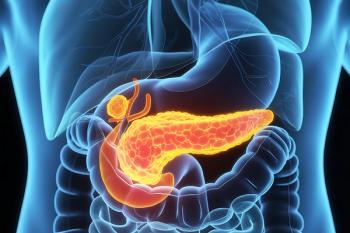
Some Mental Health Conditions Add to the Atrial Fibrillation Risk from Diabetes, Study Finds
Korean study shows that depression, insomnia and anxiety add to the risk of atrial fibrillation among those with diabetes, according to a Korean study. Those mental health condition may affect the autonomic nervous system that regulates the heart. Bipolar disorder and schizophrenia did not increase the risk.
Mental disorders are a risk factor for new onset atrial fibrillation (AF) in patients with diabetes, according to findings from a large cohort study of more than 2.5 million people.
The risk was significantly elevated for patients with depression, insomnia, and anxiety wrote lead author
The authors reported that bipolar disorder and schizophrenia were not significantly associated with AF risk.
They reported their results in November in the journal
It had already been established previously that patients with diabetes or mental disorders were at risk for AF, but investigators in this study were able to determine that the combination of the two adds to the risk of AF, particularly among younger adults. They said this deserves efforts to raise awareness of these risks.
“The relative risk of mental disorders for new onset AF was accentuated in the younger age group (HR [95% CI]: 1.47, in those aged < 40 years; 1.29, 40-64 years; and 1.16, > 65 years; P < .001),” they wrote.
Investigators drew their data from the Republic of Korea National Health Information Database. Patients who underwent checkups between 2009 and 2012 were enrolled and followed through December 2018.
“The incidence of AF in patients with diabetes is reportedly 14.9%, and AF predicts a worse prognosis in patients with DM (diabetes mellitus),” the authors wrote. Diabetes significantly increases the risk of macro- and microvascular complications and all-cause death. Mental disorders are associated with increased risks of stroke and bleeding in AF.
Diabetes requires chronic management and individuals with this disease have higher rates of depression and insomnia and other mental disorders. Among patients with mental disorders in this study, 68.1% had anxiety and 40.0% had insomnia. These were the most common. The incidence of depression in this population was 37.9%. depression, insomnia, and anxiety
The investigators wrote that mental disorders contribute to the development of AF by affecting the autonomic nervous system, which regulates heart rhythm. “Stress situations such as depression and anxiety cause autonomic unbalance.”
In addition, inflammatory cytokines increase in stressful conditions and are associated with the risk of AF. Further, sleep problems (apnea) disrupt the autonomic nervous system and lead to downstream increases in cortisol, which heightens risk for AF.
It is also the case that psychotropic drugs play a role in arrhythmia by dysregulating the autonomic nervous system and triggering AF, they wrote.
Comorbidities such as hypertension, chronic kidney disease, and heart failure were factors of significance in increased risk for AF among patients with diabetes
; “however, the risk was more prominent in those without hypertension, CKD (chronic kidney disease), or heart failure,” the investigators wrote.
Patients with mental disorders had more comorbidities, including dyslipidemia, obstructive sleep apnea, and thyroid disease, than those without mental illnesses.
Also, the proportion of current smokers and heavy drinkers was greater among patients without mental disorders than with (30.5% vs 17.5% and 11.9% vs 6.4%, respectively0, the authors noted.
Newsletter
Get the latest industry news, event updates, and more from Managed healthcare Executive.




















